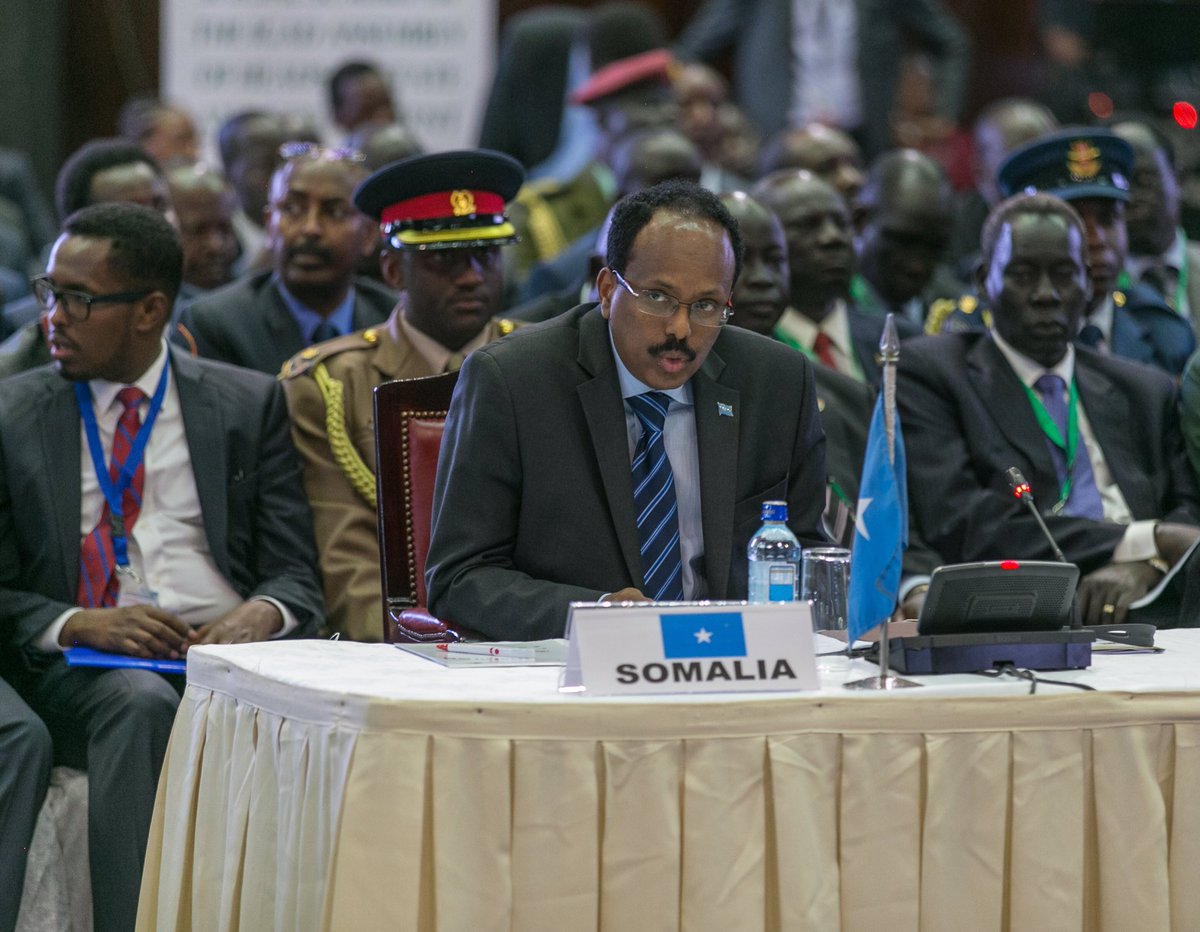Regional bloc to set multi-donor fund for Somali refugee return


The regional bloc IGAD will create a Multi-Donor Trust fund for Somalia to support and facilitate enable voluntary return of Somali refugee as the region seeks a permanent solution to the refugee crisis in the region.
The fund, the leaders said will be managed by the Federal Government of Somalia to support and facilitate the creation of an enabling environment and the rolling out of durable solutions, including safe, sustainable and voluntary return of refugees.
Heads of States and Governments meeting in Nairobi Saturday emphasized the need to a holistic approach to the Somali refugee crisis which includes among others dedicated support to the Somali security apparatus, investment opportunities and debt relief to enable the country access much needed credit from financial institutions.
“Further call upon International Financial Institutions, bilateral, regional and international partners, to accelerate Somalia’s debt relief process and provide access to financial assistance, concessionary loans and essential support to facilitate development inside the country,” the leaders said.
Debt relief
The call for debt relief reinforces UN Special envoy to Somalia Michael Keating’s address to the UN Security council last week to support Somalia towards the cancellation of debts to facilitate access to loans for development.
“Support is needed to clear Somalia’s arrears and allow her to move down the path towards debt relief,” said Keating.
Somalia has an estimated foreign debt of $5.3 billion, which translates to 93% of its Gross Domestic Product locking out the country from any credits from international financial institutions.
In a communique Saturday, the leaders warned the influx of Somali refugees into IGAD Member States and the suffering of IDPs in Somalia as a result of the on-going severe drought, aggravated by the effects of climate change further strains resources and capacities of member states to cope calling for international support to find more durable solutions.
Donor pledges
Earlier, IGAD council of ministers called on donor countries to fulfill their pledges and increase support for infrastructure development towards recovery in Somalia.
“The Council recalled the pledges made in Brussels and Istanbul conferences on Somalia and appealed to those concerned to honor their pledges. The Council further called for support from the international community to invest in infrastructural development towards socio-economic recovery,” the ministers said.
The UK will in May host an international conference for Somalia.
Long term solutions
Speaking during the summit, Somali President Mohamed Farmaajo said his government was committed to long term solutions to avoid perennial displacements particularly caused by droughts.
“”In our national development plan, we intend to mitigate the root causes of the cyclic droughts in our country,” said Farmaajo, adding, “Our durable solutions strategy calls for land reforms, resettlement policy and affordable housing.”
About 1.1 million Somalis are displaced internally occasioned by insecurity and drought which has forced many to move to safer places including the city Mogadishu which hosts upwards of 300,000 internally displaced persons. The ongoing drought is further worsening the situation pushing thousands from their homes with others having to cross the border for help.
The Special Summit of the IGAD bloc sought to find lasting solutions to the refugee crisis which has caused friction in the region as Kenya threatens to close the Daadab refugee complex citing security and environmental degradation.
The Nairobi meeting also explored options of giving refugees opportunities for gainful employment and self-reliance. To realise this, the leaders and representatives of the international community called on member states to align domestic laws and including civil documentation, in line with refugee status under the 1951 Refugee Convention obligations in order to enable refugees to access gainful employment and self-reliance’.